Understanding the Unique Nature and History of Irish Wolfhounds: Are They the Right Fit for Your Family?
Imagine walking down a bustling street with a gentle giant by your side, a magnificent Irish Wolfhound whose presence commands admiration and curiosity from passersby. These majestic dogs, known for their towering stature and rich history, offer a unique blend of nobility and warmth that can transform any household. In this exploration, we’ll delve into the storied past of Irish Wolfhounds, uncovering their ancient roots and how they’ve evolved to become the gentle companions we know today. We’ll also navigate the practicalities of their care, from grooming needs to exercise requirements, to help you determine if this breed aligns with your family’s lifestyle. Whether you’re a seasoned giant breed owner or a curious newcomer, join us as we reflect on the qualities that make Irish Wolfhounds a potential fit for your home.
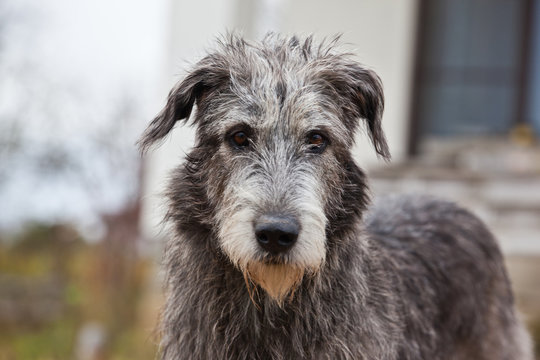
Irish Wolfhound Origins
To appreciate the grandeur of the Irish Wolfhound, it’s vital to understand its rich history. These dogs are not just known for their size but also for their storied past, which is filled with legends and transformations over centuries.
Ancient Roots and Legends
The Irish Wolfhound’s journey begins in ancient times. This dog was a companion and protector for the Celts, who revered it for its hunting prowess. These hounds were known for their ability to hunt wolves and even large game.
Legends abound about Irish Wolfhounds in ancient texts. They were often gifts of prestige among royals, symbolizing strength and nobility. Their presence in mythology illustrates their importance in culture and history.
Historical accounts from the Roman period also mention these dogs, noting their impressive size and strength. They were treasured as war dogs and hunters, making them integral to Celtic society.
Revival in the 19th Century
The 19th century marked a pivotal period for Irish Wolfhounds, as interest in reviving the breed surged. Captain George Augustus Graham spearheaded this movement, driven by a desire to restore the breed to its former glory.
To achieve this revival, Graham meticulously crossbred the remaining Irish Wolfhounds with Deerhounds, Great Danes, and Mastiffs. This careful breeding program was essential to reestablish the breed’s distinctive traits and size.
The revival was successful, and by the late 1800s, the breed was officially recognized. This period ensured the preservation of the Irish Wolfhound’s legacy, allowing its noble presence to endure into modern times.
Modern-Day Status
Today, the Irish Wolfhound continues to captivate dog enthusiasts worldwide. Its iconic stature and gentle nature make it a beloved companion for many families. However, the breed is uncommon, often seen as a rare treasure among dog breeds.
The Irish Wolfhound’s status is not just about appearance. It embodies a combination of nobility, strength, and warmth. This breed continues to participate in dog shows, showcasing its elegance and adherence to breed standards.
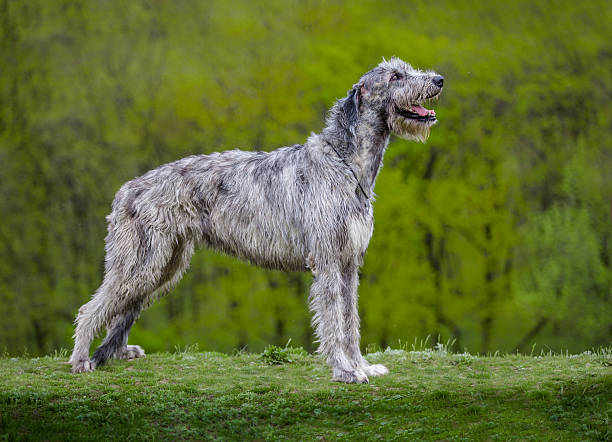
Grooming and Care Essentials
When it comes to grooming and care, Irish Wolfhounds have specific needs. Understanding how to manage their upkeep is crucial to ensuring their health and happiness.
Coat Maintenance Tips
The Irish Wolfhound’s coat requires regular care to keep it looking its best. Their wiry, double-layered coat can become tangled if neglected.
-
Weekly Brushing: Use a slicker brush to remove loose hair and prevent mats.
-
Occasional Bathing: Bathe your hound only when necessary to avoid stripping natural oils.
-
Trim Nails: Regularly check and trim nails to prevent overgrowth and discomfort.
Maintaining their coat isn’t just about aesthetics; it’s vital for their skin health. Regular grooming sessions also provide an opportunity to check for any skin issues or parasites.
Health Considerations
Irish Wolfhounds, like all giant breeds, have specific health concerns. Their size predisposes them to certain conditions, and proactive care is essential.
Joint health is a significant consideration. Due to their large frame, they may be prone to hip and elbow dysplasia. Regular vet check-ups can help monitor these conditions and implement preventative measures.
Another common concern is bloat, a life-threatening condition in deep-chested breeds. Ensuring they eat slowly and rest after meals can help reduce this risk.
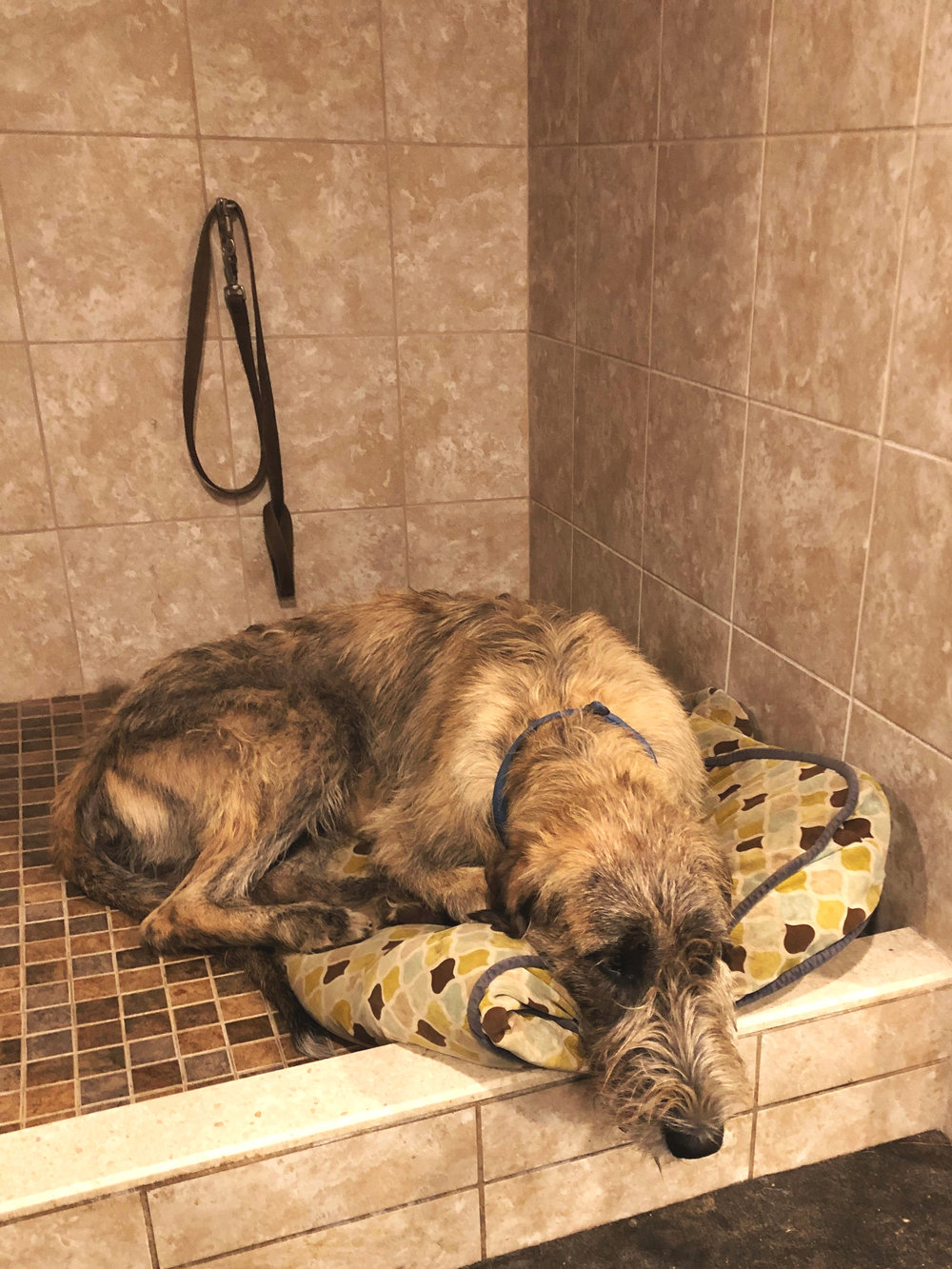
Feeding a Giant Breed
Feeding an Irish Wolfhound requires careful planning to meet its nutritional needs. Their diet should support their growth and maintain their health.
-
Quality Food: Choose high-quality dog food designed for large breeds, ensuring balanced nutrition.
-
Meal Portions: Divide their daily intake into multiple smaller meals to reduce bloat risk.
-
Monitor Weight: Regularly check their weight to prevent obesity, a common issue in large breeds.
Proper feeding is crucial not just for their current well-being but for their long-term health.
Breed Standards and Temperament
Knowing the breed standards and temperament of Irish Wolfhounds helps potential owners understand what to expect. It’s about more than just their appearance; it’s also about their character.
Recognizing Breed Standards
The breed standards for Irish Wolfhounds highlight their impressive stature and unique features. These standards ensure the breed retains its historical characteristics.
The typical Irish Wolfhound stands tall, with males reaching up to 32 inches at the shoulder. Their coat is harsh and wiry, often grey, brindle, or fawn.
Their elegant gait is a crucial aspect of the breed standard. Despite their size, they move with grace.
Typical Wolfhound Temperament
Irish Wolfhounds are known for their gentle and calm demeanor. Despite their intimidating size, they’re often described as gentle giants.
These dogs are incredibly loyal and form strong bonds with their families. They’re typically good-natured and get along well with children and other pets.
Their calm nature makes them excellent companions, though they may be reserved with strangers.
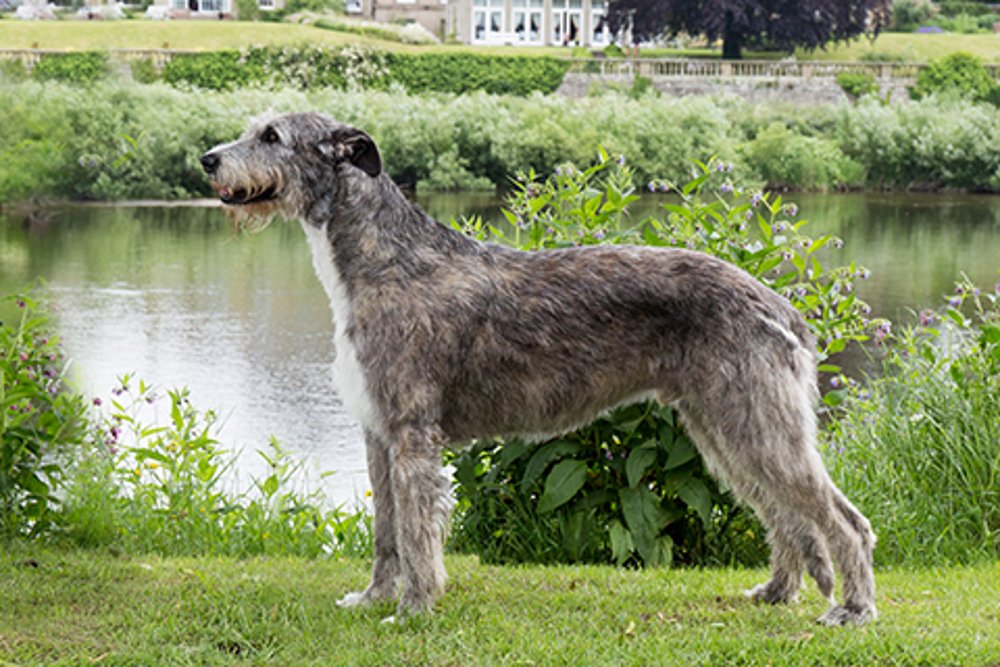
Socialization and Training
Socialization and training are crucial for all dogs, and Irish Wolfhounds are no exception. Early and consistent training helps them become well-mannered companions.
-
Start Early: Begin socialization from a young age to expose them to various environments and situations.
-
Positive Reinforcement: Use rewards and praise to encourage desired behaviors.
-
Consistent Commands: Maintain consistency in training to avoid confusion.
Proper training ensures they grow into well-adjusted adults, comfortable in diverse settings.
Assessing Family Compatibility
Determining if an Irish Wolfhound is right for your family involves evaluating your lifestyle and the dog’s needs.
Suitability for Families
Irish Wolfhounds can make wonderful family pets. Their gentle nature and protective instincts often mean they fit well into family life.
They are known for their patience with children, making them excellent companions for families with kids. However, due to their size, supervision is recommended during interactions with small children.
Their calm demeanor at home is counterbalanced by their need for companionship, so they thrive in loving, active family environments.
Exercise Needs and Lifestyle
Despite their size, Irish Wolfhounds have moderate exercise needs. Regular walks and playtime help keep them fit and healthy.
-
Daily Walks: Aim for at least one substantial walk per day to satisfy their exercise requirements.
-
Safe Play Areas: Provide a secure, open space for them to roam and play.
-
Mental Stimulation: Incorporate activities that challenge their minds, such as puzzle toys.
Meeting their exercise needs is essential to prevent boredom and promote overall well-being.
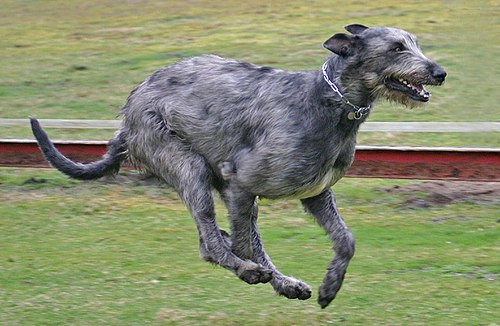
First-Time Owner Considerations
Irish Wolfhounds can be suited for first-time owners who are prepared for their specific needs. However, their size and care requirements can be challenging.
Potential owners should be ready for the financial commitment of owning a large breed, including food and healthcare costs. It’s also important to consider the space needed for such a large dog.
For those willing to invest the time and resources, Irish Wolfhounds can be deeply rewarding pets, offering love and companionship like no other breed.
MOST POPULAR POST

Bacon Biscuits

Breed Highlight: Presa Canario

April Newsletter Exercise

Refreshing and Nutritious Frozen Dog Treats




